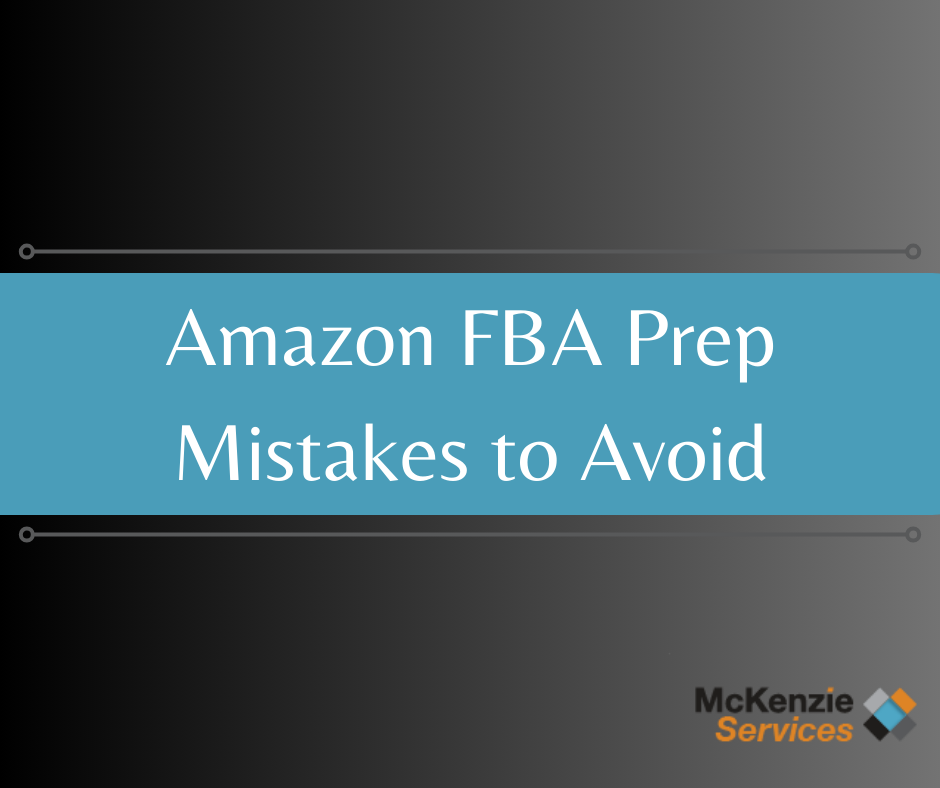Preparing items for Amazon may seem simple enough, but beyond the “dos” like labeling, polybagging, suffocation warnings – there are many “don’ts” to keep in mind as well. This is where prep centers come in – we have so much experience and knowledge that preparing your items for sale the right way is second nature to us.
Here are some things to avoid when preparing units for Amazon:
-
Inadequate Packaging.
UPS and other carriers will toss around your cartons as they move through the system. Plus, the cartons will be jostled as well during the drive from the preparer to their destination. This is why it’s so important to package the units tightly, and with enough dunnage to keep them secure. For example, glass will need to be not only bubble wrapped, and taped tightly, but packaged securely in a properly-sized box with adequate dunnage. Did you know? For dunnage, packing peanuts are not accepted.
-
Incorrect labeling
Remember our post about label types? You will want to make sure each of your items has a scannable barcode, as well as (if applicable) “this is a set” sticker, and a suffocation warning if it is not already printed on the polybag you’re using. Don’t forget to also cover other barcodes and price tags, so they are not accidentally scanned at the Amazon FBA facility.
-
Incorrect prep
Make sure you follow the standards for each item you are sending to Amazon. Do not skip out on polybags, bubble wrap, or required labels. Amazon will redo the work and charge you for it, and if they make a mistake, you will be responsible for it.
-
Inaccurate weight and dimensions on shipping labels
Obviously, there is room for slight error. But you will want to be as accurate as possible. In addition to the tools and supplies we mentioned in this post, consider also having a measuring tape and a package scale on hang. If your measurements are too inaccurate, you may face fines.
-
Not tracking how things are packaged
We use our in-house software to track what skus, and how many units of each sku, are inside each box. This helps us help our clients with disputes if Amazon says they over or under received units. If you’re working on your own shipments, be sure to know these details as they can come in handy later.
-
Not keeping track of expiration dates
Amazon requires an expiration date for applicable products. They will also not accept products that have an expiration date of less than 3 months from the date of shipment.
Make sure you are always up to date on Amazon’s policies, and that your products are in the condition you say they are. This list is non-exhaustive. As a prep center, it’s our job to be up to date at all times on all of these matters – if you’re feeling overwhelmed with preparing and shipping items to Amazon, reach out and see how we can help!

Comments are closed